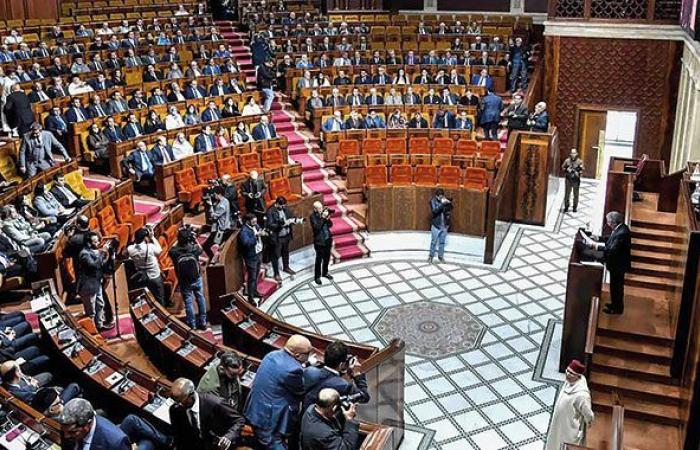
Academicians and experts highlighted, Wednesday in Rabat, the need to broaden the guarantees linked to the exercise of the right to strike in the bill currently under consideration before the Chamber of Advisors.
Speaking during a study day, organized by the Committee on Education and Cultural and Social Affairs in the Chamber, in the presence of the Minister of Economic Inclusion, Small Businesses, Employment and Skills, Younes Sekkouri, they considered that the bill “should be based on freedom, and not on restriction and coercion”, noting that the “restrictive” provisions would be likely to lead to “unstructured forms of protest” .
After welcoming the importance of stipulating in an article, similar to the preamble, the general foundations, principles and basic references of the bill defining the conditions and modalities for exercising the right to strike, they noted that the definition of the right to strike “does not fall within the competence of the legislator but is subject to jurisprudential and judicial interpretation”.
In this regard, they stressed that the legislator “must establish a general and interpretable definition, and not narrow definitions which can lead to restricting the law and forcing the judge to apply them”.
In relation to the procedures linked to the strike in terms of deadlines, they pleaded for reasonable deadlines, considering that “the strikers should not be burdened with too many notifications”, believing that it would be sufficient “to notify the employer and the governor of the province or prefecture, as representative of the government, in order to facilitate the procedures.”
In addition, the participants in this meeting noted what they consider to be the absence of a key actor, in this case the labor inspector, with regard to his role in resolving conflicts in relation to the work environment, calling for a review of the penalty structure provided for in chapter three of the legislative text.
-In reaction to the interventions, Mr. Sekkouri indicated that the current version of the legislative text, as approved by the House of Representatives, “does not reflect the position of the government and remains a provisional version”, explaining that this meeting aims to share different opinions “to address the problems that may arise from the implementation and application of the strike bill”.
According to the minister, the engineering of this text in the House of Representatives was marked by “a real and unprecedented difficulty in the history of legislation in Morocco”, welcoming the substantial amendments presented by the parliamentarians, and the number of which is 334 amendments.
And to emphasize that the interaction with these amendments is based on the holding of real legislative sessions and not in a logic of power struggle between majority and opposition.
For Mr. Sekkouri, this legislative text is incomplete and requires amendments, particularly in terms of recourse to criminal sanctions and the recourse of strikers to emergency courts to protect their rights, adding that a certain number of points are not likely to be rejected by the government, but it is necessary to improve and refine its wording.
In short, the government remains open to the social partners, by soon organizing another round with the trade union centers on this bill and its discussion within the parliamentary committee concerned in the House of Advisors, he noted.





